Pakistan was the scene of Barack Obama’s arguably greatest triumph as president when he ordered American commandos to kill Osama bin Laden in Abbottabad on May 2, 2011. He made the crucial decisions about the raid including the decision not to tell anyone in Pakistan that the Central Intelligence Agency had found bin Laden’s hideout less than a mile from Pakistan’s Kakul Military Academy, the equivalent of West Point. By 2012, Obama and George Bush had given Pakistan $25 billion in military and economic aid since 9/11 to fight al-Qaida, but Obama was certain he couldn’t trust the Pakistani government. The raid will probably be one of Obama’s most enduring and best remembered legacies.
Eight years ago, President Barack Obama inherited a policy toward Pakistan in tatters. America had backed a military dictatorship that protected the Taliban and attacked India until the Pakistani people overthrew the dictator Pervez Musharraf. Al-Qaida was rampant across the country and Osama bin Laden was harbored in the front yard of the country’s military academy actively plotting against America. Just days after Obama’s election, Pakistani terrorists attacked the city of Mumbai and killed scores of Indians and a half dozen Americans.
In March 2009, Obama set as his top priority to disrupt, dismantle, and defeat the al-Qaida infrastructure in Pakistan which posed an imminent and significant threat to the United States and its allies. The CIA was the lead agency in the fight. Drone strikes intensified dramatically. In 2011, bin Laden was tracked down by the agency and a Navy SEAL team delivered justice. Pakistan was not a partner in the war against al-Qaida for the most part and several terrorist groups like Lashkar-e-Taiba (LeT), which are patronized by the Pakistani army, actively colluded with al-Qaida.
Today the al-Qaida infrastructure in Pakistan is much reduced but not destroyed. Bin Laden’s successor Ayman al-Zawahri is still in Pakistan and is still producing propaganda calling for attacks on Americans. Bin Laden’s son Hamza is also active in Pakistan and may be the next emir of al-Qaida. The threat is significantly reduced but must be constantly monitored.
Almost a decade after the assassination of Benazir Bhutto, which al-Qaida claims credit for, a fragile and imperfect democracy is in place. For the first time in the 70 years of the country’s history, one freely elected government succeeded another. Prime Minister Nawaz Sharif has embarked on a massive infrastructure development project with aid from China that will transform the country. He has distanced Pakistan from Saudi Arabia and sought to dampen Sunni-Shiite tensions at home and abroad.
Washington is not responsible for the progress toward democracy in Pakistan but unlike some past administrations, Obama has not obstructed it. Too often American presidents have been entranced by Pakistani generals. Obama understood they are the problem, not the solution.
The generals have belatedly waged war against some terrorist groups that attack Pakistanis. It is a tough campaign and is far from over. At the same time, the army continues to protect and support groups like LeT, which just eight years ago, attacked Mumbai. Obama did bring to justice to the American who helped plot the Mumbai attack, David Headley, but the head of LeT, Hafeez Saed, is still the darling of the generals. He regularly appears on television and at rallies to denounce America, Israel, and India.
The army also provides sanctuary and safe haven to the Afghan Taliban. The Pakistanis assist with fund raising, training, and operations for the Taliban. Pakistan covered up the death of the Taliban’s founder and leader Mullah Mohammad Omar in Karachi for two years to strengthen its control on the group and has hand picked his successors.
Last year, an American drone killed Mullah Omar’s first successor in a strike inside Pakistan. It was the only such strike against the Taliban inside Pakistan since the war in Afghanistan began in 2001. More such strikes would undermine the safety that the Taliban leadership enjoys.
Economic and military aid to Pakistan has declined on Obama’s watch. Support for aid in Congress has declined significantly as the extent of Pakistani support for terrorist activity has become clear. The Abbottabad raid that killed bin Laden was a turning point; it dramatically illustrated how little Pakistan was doing to help fight al-Qaida (or worse, assisting it). Congress no longer rubber stamps aid requests. Some on the Hill argue Pakistan should be listed on the State Department list of state sponsors of terrorism. President George H. W. Bush seriously considered that option in 1992; his three successors did not.
Pakistan has the fastest growing nuclear arsenal in the world. This month, Pakistan successfully tested a submarine launched cruise missile (SLCM) for the first time. The Babur-3 SLCM has a range of 450 kilometers and provides Pakistan with a secure second strike capability. Pakistan is expanding its submarine fleet with Chinese assistance. The United States has no effective policy toward Pakistan’s nuclear program.
The president never visited Pakistan in his tenure. His cabinet officials gradually cut back visits to the country. Attention to Pakistan seemed to fade in the last years of the administration. The incoming administration has to deal with a nation of almost 200 million people armed with a fully-tested nuclear arsenal which is both a victim and a patron of terrorism.
Pakistan has been at the root of crisis for the last several administrations. Bill Clinton faced nuclear tests and a dangerous border war in 1999 with India; George W. Bush was surprised by 9/11 and another Indo-Pakistan crisis; and Obama dealt with Mumbai and Abbottabad. The next administration will likely be tested early.
The Brookings Institution is committed to quality, independence, and impact.
We are supported by a diverse array of funders. In line with our values and policies, each Brookings publication represents the sole views of its author(s).


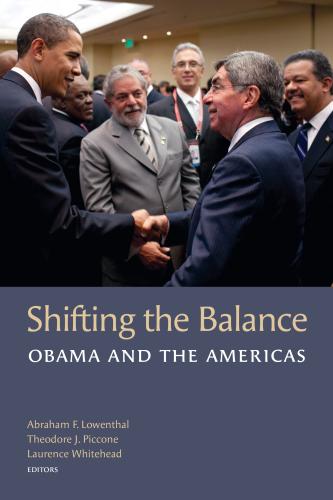
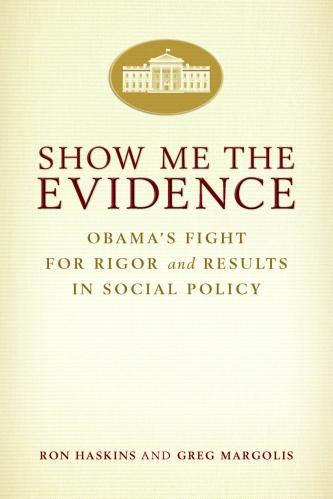
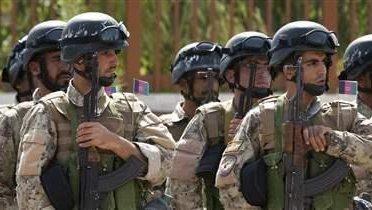
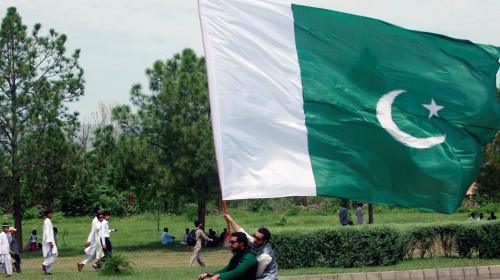
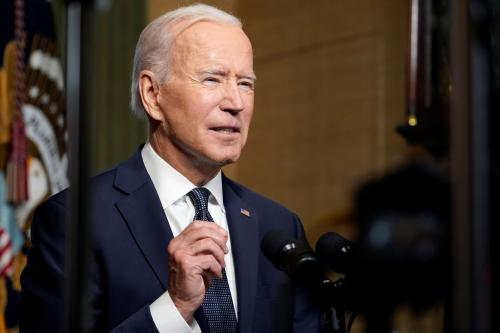

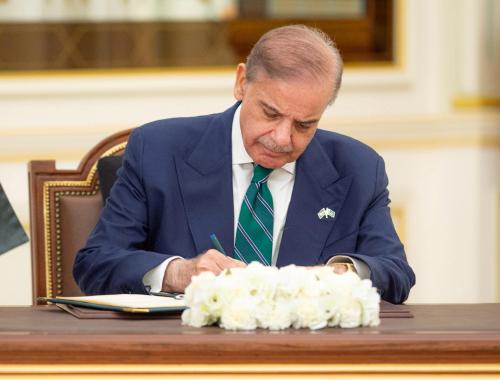


Commentary
How Pakistan may test the Trump administration
January 17, 2017